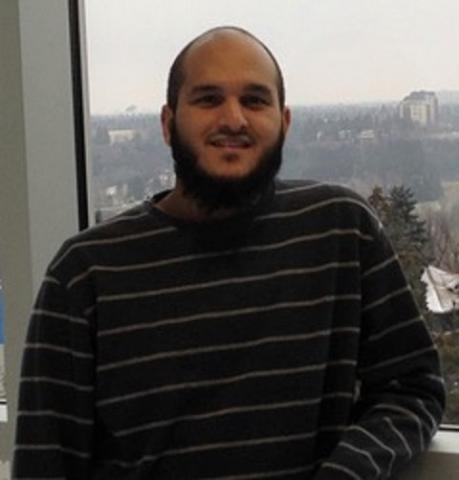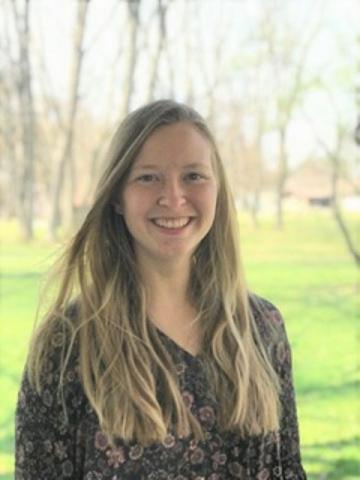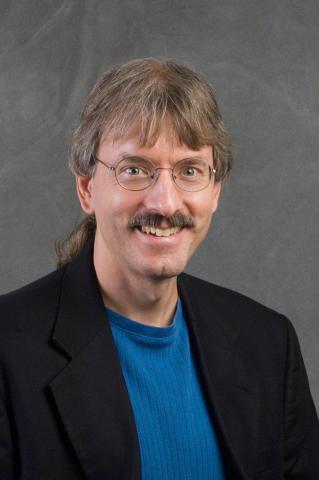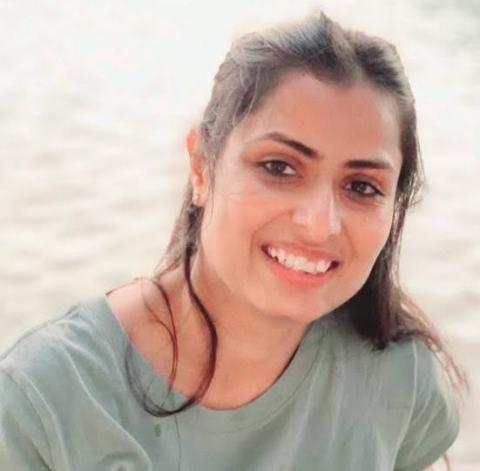ABSTRACT Tissue- and cell-specific expression patterns are highly variable within and across individuals, leading to altered host responses after acute virus infection. Unraveling key tissue-specific response patterns provides novel opportunities for defining fundamental mechanisms of virus-host...
Filter results
Category
- Scientific Discovery (95)
- Biology (70)
- Earth System Science (34)
- Microbiome Science (18)
- Human Health (15)
- Chemistry (7)
- Computational Research (7)
- Integrative Omics (5)
- Materials Science (5)
- National Security (3)
- Chemical & Biological Signatures Science (2)
- Plant Science (2)
- Weapons of Mass Effect (2)
- Atmospheric Science (1)
- Computational Mathematics & Statistics (1)
- Computing & Analytics (1)
- Data Analytics & Machine Learning (1)
- Data Analytics & Machine Learning (1)
- Ecosystem Science (1)
Tags
- Viruses (13)
- Soil Microbiology (10)
- Health (9)
- Virology (9)
- Virus (9)
- Mass Spectrometry (7)
- PerCon SFA (7)
- Omics (5)
- Predictive Phenomics (5)
- Synthetic Biology (5)
- Ions (4)
- Microbiome (4)
- Nanoparticles (4)
- Proteomics (4)
- sequencing (4)
- Electrical energy (3)
- Energy (3)
- Fungi (3)
- Genomics (3)
- Metagenomics (3)
- RNA Sequence Analysis (3)
- Sodium (3)
- Transcriptomics (3)
- Aggregation (2)
- Anions (2)
- Carbon Cycling (2)
- metabolomics (2)
- microbiome stability (2)
- Polymer Materials (2)
- Spectroscopy (2)
Our understanding of the process of mineral nucleation is starting to evolve from the solely thermodynamical aspects in classical nucleation theory toward a mechanistic study of reactions influenced by solvation structures of ions and their dynamics. A knowledge of how these atomic and molecular...
Hamza is a Post Masters Research Associate at JGCRI within the Earth and Biological Sciences Directorate of PNNL. He has recently been working on the CEDS project to help develop a database of historical pollutant emissions for research and analysis. Prior to joining PNNL, Hamza completed graduate...
Andrea is a Post Masters Research Associate at PNNL. She is recently working on the CEDS project, tracking and analyzing historical anthropogenic emissions. Before joining JGCRI, she received her master's in Renewable and Clean Energy and bachelor's in Mechanical Engineering from the University of...
Smith is an Earth Scientist at PNNL whose recent research has focused on the interactions between air pollution and climate, the potential near-term role of short-lived climate forcers, and the development of comprehensive estimates of historical air pollutant emissions over the industrial era...
"DNA Viral Diversity, Abundance, and Functional Potential Vary across Grassland Soils with a Range of Historical Moisture Regimes" Soil viruses are abundant, but the influence of the environment and climate on soil viruses remains poorly understood. Here, we addressed this gap by comparing the...
Category
"Deconstructing the Soil Microbiome into Reduced-Complexity Functional Modules" The soil microbiome represents one of the most complex microbial communities on the planet, encompassing thousands of taxa and metabolic pathways, rendering holistic analyses computationally intensive and difficult. Here...
Category
Representing biological networks as graphs is a powerful approach to reveal underlying patterns, signatures, and critical components from high-throughput biomolecular data. However, graphs do not natively capture the multi-way relationships present among genes and proteins in biological systems...
Soil fungi facilitate the translocation of inorganic nutrients from soil minerals to other microorganisms and plants. This ability is particularly advantageous in impoverished soils, because fungal mycelial networks can bridge otherwise spatially disconnected and inaccessible nutrient hotspots...
Category
Dr. Yinghui Wu is an Assistant Professor in the Department of Computer and Data Sciences, Case School of Engineering at Case Western Reserve University, US, and a joint staff scientist at Pacific Northwest National Lab, US. He received his Ph.D. in Computer Science from the University of Edinburgh...
Sheng Guan is currently pursuing a Ph.D. degree from Case Western Reserve University under the supervision of Dr. Yinghui Wu. Sheng got his master’s and bachelor’s degree from Florida International University (major in computer science, 2017), The Hong Kong University of Science &Technology (major...
Khushbu Agarwal is a Senior Research Scientist in the Data Sciences and Machine Intelligence group at the Pacific Northwest National Laboratory. Her primary research interests are at the intersection of graph analytics, deep learning, and their applications to solving real-world application needs...
Dr. Sutanay Choudhury (PI) is a Chief Scientist at PNNL with 10+ years of experience in large-scale graph analytics and machine-learning. His research focuses on learning high-fidelity representations of structure from complex data sources and development of methods for reasoning and prediction on...
Dr. Seemita Pal is the Team Leader for the Architecture Team in the Distributed Systems Group at Pacific Northwest National Laboratory (PNNL). Her research interests include grid cybersecurity, grid architecture, cybersecurity-focused verification and validation, power systems, and synchrophasor...
Dr. Soumya Kundu is a Staff Research Engineer in the Optimization and Control Group at the Pacific Northwest National Laboratory. Soumya is primarily interested in solving complex engineering problems by applying tools from systems theory, control and optimization. His current research focus is...









